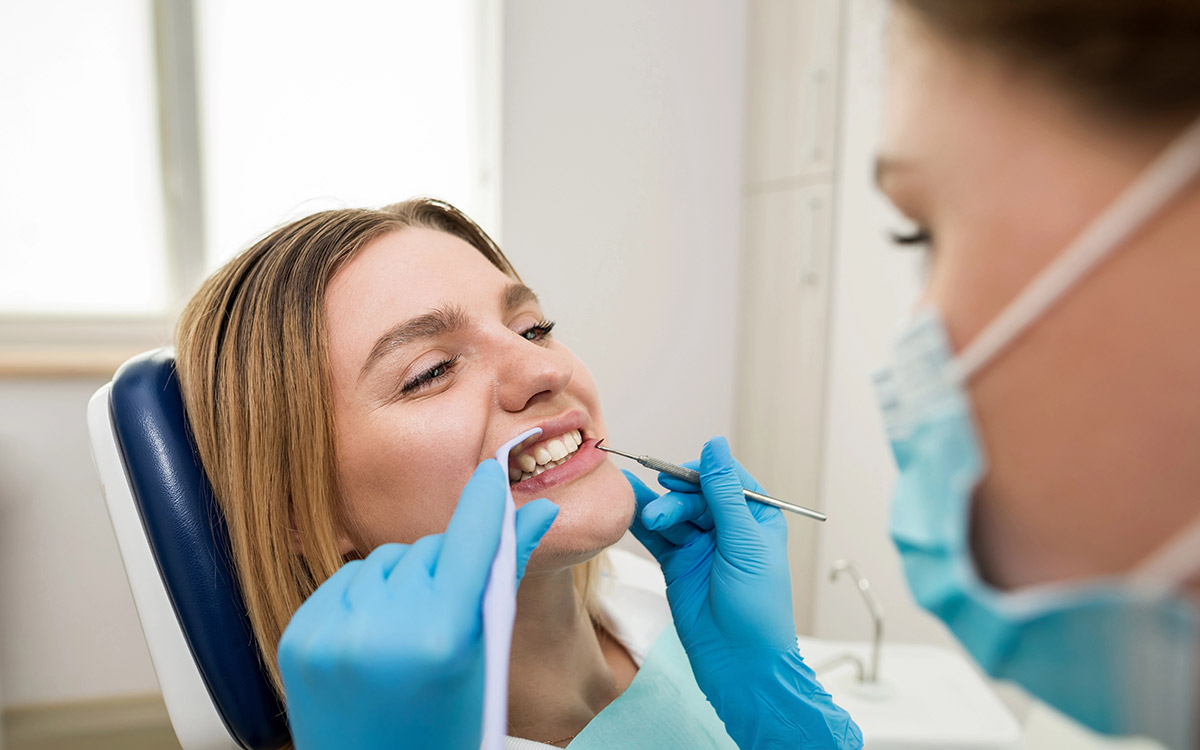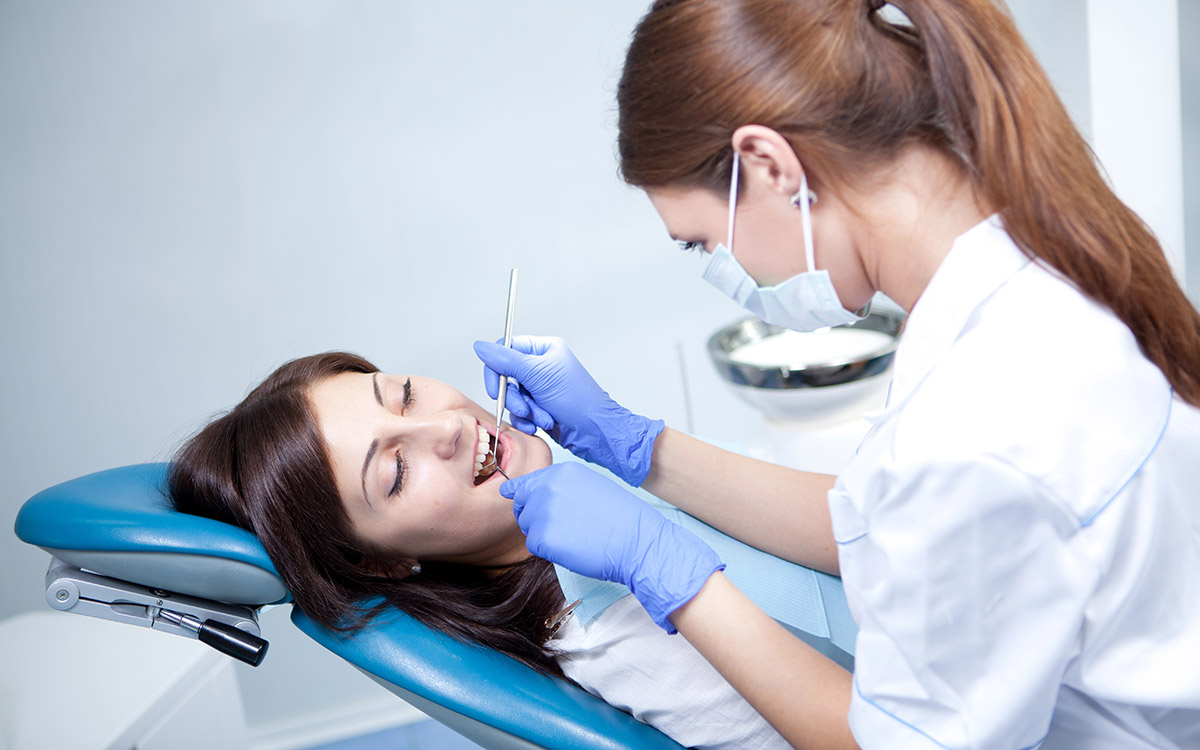Have you ever faced a dental problem only for friends and family to classify it as a dental emergency? Sadly, most people do not take it seriously in hopes that it will clear itself up. Plus, who wants to call their dentist past hours?
But what if you have a dental emergency? Many dental problems can become more severe over time if left untreated. So whether you had it or not, you could develop a dental emergency in a few hours.
But just to be safe, you should probably learn about what qualifies as a dental emergency and what you should do if you face one. The information below covers this, plus the most common types of dental emergencies.
What Qualifies As A Dental Emergency?
Dental emergencies are more common than you would think. But a dental emergency means that you are experiencing symptoms that negatively affect your life. If you have trouble going about daily tasks due to pain or symptoms of dental problems, then it is an emergency.
Additionally, if you experience trouble sleeping due to these symptoms, then you have a dental emergency. Also, consider how long you have been experiencing these symptoms. If it is more than two days, you should consider heading to the emergency room.
A dental emergency is also any situation that involves consistent and uncontrolled bleeding, bone trauma on the face, and loose teeth.
Types Of Dental Emergencies
1. Unending Toothaches
Have you ever experienced an endless toothache? It qualifies as a dental emergency. The ordinary toothache usually occurs with some sensitivity and is on and off. An emergency toothache onsets suddenly and only gets worse with time.
An abscess often causes emergency toothaches, but it could be an underlying issue such as gum disease and cavities. Either way, you will experience pain and swelling around the affected area, which may also show on your face.
Additionally, you may notice some bleeding and extreme pain when biting, chewing, or applying any pressure on your teeth. Some people even have trouble opening their mouths to talk, smile, or yawn.
It may be difficult to distinguish where the pain is coming from or what is causing the toothache. Therefore, visit your dentist if the pain does not let off in a day or two.
2. A Knocked-Out Tooth
A knocked-out tooth is one of the most common and time-sensitive dental emergencies. A knocked-out tooth can occur due to blunt force trauma to the face. It occurs in kids and adults during contact sports and fights.
A knocked-out tooth can be saved and restored by a dentist, but you need to make it to the emergency room as fast as possible. Dentists recommend putting the tooth back in its socket to provide fresh blood for reservation.
You can also place the tooth in some milk and go to the emergency room for restoration. This will keep the tooth alive if you cannot hold it down in the socket. But this will not last long so head to the dentist as soon as possible.
3. Soft Tissue Injury
A soft tissue injury is any injury that affects the mouth’s soft tissues. This includes the gums, lips, inside of the cheeks, and tongue. If you experience any severe injuries to these soft tissues, you should go to your dentist for emergency treatment.
Soft tissue injury usually presents itself as bleeding, swelling, pain, discolorations, cuts, punctures, and gashes. But you should check the severity of your symptoms before counting it as a dental emergency.
If you have minor cuts or punctures, just rinse with a saline solution and apply consistent pressure. Rinse with a saline solution and head to the emergency room if your cuts are deep. If the bleeding doesn’t stop, then head to the emergency room.
4. Jaw Dislocation Or Breaking
Your jaw is directly linked to your ability to eat, talk, and drink. Therefore, jaw dislocation or breaking is a serious dental emergency. People often develop jaw injuries due to contact sports, accidents, and fights.
This injury is not the type you can treat yourself or wait for it to go away. You need emergency attention from a general physician and a dentist. The general physician can examine your jaw and put it back in place.
The dentist will replace any missing teeth, fit you with loose fillings crowns, and solve any tooth-related injuries you may have sustained from the dislocation or breaking. The quicker you get to the doctor, the better the chances of recovery for your jaw and teeth.
5. Chipped Or Broken Teeth
And finally, some levels of chipped and broken teeth count as dental emergencies. Your teeth can chip or break due to multiple reasons. You could bite down too hard on a surface, grind your teeth too much, or clench your teeth.
Broken teeth are also a result of tooth decay and trauma to the mouth. If the crack or chip extends to the roots of the teeth, it will expose the nerves and pulp to bacteria and other conditions. This causes unbearable pain, bleeding, and discoloration on the gums.
You will also become more susceptible to infections that can further deteriorate the situation. But you do not need to suffer as you can head to the dentist for emergency treatment. Ensure that you keep tooth fragments in a glass of milk to keep them alive for restoration.
What To Do In A Dental Emergency
Are you scared to visit the dentist during a dental emergency? You are not alone! Many people suffer from dental anxiety, even during routine checkups. You just need to calm down and visit your dentist for treatment.
Remember, the dental emergency will not go away on its own. Getting to the emergency room as soon as possible improves the chances of recovery after treatment. Keep any tooth pieces you have in a glass of milk, and get someone to take you to the dentist.
Additionally, ensure that you rinse your mouth with a saline solution if you experience any bleeding or sustain cuts and punctures. Feel free to come down to All About Smile Dental Group, and we will take care of you!







